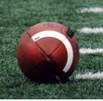I have to take a moment to tip my cap to the college coaches out there – especially with national signing day approaching.
In the aftermath of a meltdown loss by the Cincinnati Bengals, my own mental health as a long-suffering Bengals fan requires me to quickly focus on something else – anything else – when visions of the final two minutes enter the brain. However, when others brought up the Marvin Lewis culpability issue, it gave me pause to consider the position of college coaches.
My question for them is: How do you sleep at night?
Not everybody . . .
Among the many examples of “not winning enough” was the Frank Solich firing at Nebraska back in 2001.
Solich, who grew up in Cleveland and earned all-state, All-American and all-scholastic honors during his prep career, was a standout fullback at Nebraska, eventually serving as a co-captain and earning All-Big Eight honors.
After some very successful high school coaching campaigns in Nebraska, he joined the Cornhuskers staff as an assistant under legendary head coach Tom Osborne.
Following a legend is a tough gig, and although Osborne had tabbed Solich as his successor, nothing short of a national championship would be enough. He was 9-3 at the time of the dismissal and had posted three seasons in which the Cornhuskers went 12-1, 10-2 and 11-2.
Solich, who subsequently turned around the Ohio Bobcats program and is STILL in Athens, had a 58-19 record in six years at Nebraska. But I digress!
I mention Solich to illustrate the pressures of winning. It is against that backdrop that many coaches are put in a position of dealing with some talented knuckleheads.
Among the many fine examples of student athletes are usually a few that live on the edge – or beyond. Some coaches/programs are more likely than others to overlook a red flag on a talented prep player before signing them. But there are no guarantees on anybody.
Team rules are essential and offer a framework for what leverages are available. How many times have we heard of an athlete suspended for “a violation of team rules.” Really, that could be almost anything.
Punishments vary. I once watched a player carrying a sandbag up and down the stadium steps. More often, punishment are anything from sprints to loss of playing time or “indefinite suspension.” If bad enough, dismissal is a possibility.
Sometimes the student-athlete just has a knucklehead moment. I’ve heard there is some of that going around on college campuses. Sometimes, the slipups are part of a pattern.
As for timing, well, you can’t count on a “big game” Saturday to keep somebody from screwing up. To wit, on a professional level, Bengals running back Stanley Johnson missed Super Bowl XXIII after a cocaine use incident on the night before the big game. It was his third strike and resulted in a lifetime NFL ban.
On the short-term, it cost the Bengals dearly in a game where his running style would have been a major asset. Cincinnati ended up losing the contest, 20-16, on a late Joe Montana TD pass.
I know a high school coach of many years who recounted how he treasured the experiences with hundreds of players. Then, too, he recalled a super-small group who might have better served the program had they never showed up.
There will be plenty of excitement and verbal flag waving when NLI Day arrives. No doubt, a few red flags will slip into the picture. Most will be taken down as student-athletes adapt, mature and make better choices.
Still, NLI Day is the start of a long journey. Many coaches know there could be a few overnight phone calls and lost sleep along the way.
NOTE: A really interesting read on the topic can be found HERE.


 RSS Feed
RSS Feed